
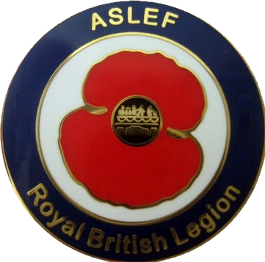
LOCOMOTIVE JOURNAL
JANUARY 1945
RAILWAY COMPANIES' CLAIM
Congratulations and Sacrifice
In various contemporaries recently, references have been made to all that has been performed by the railway during the period of hostilities. Where the articles containing these references have been written by chief officers of the railway companies, attention is alway directed to the fact the systems have served the country very well during the war years, due to the organisation of the companies in the years prior to 1939. We have no desire to belittle the tremendous task which fell upon the railway companies with the advent and continuance of war circumstances, and we have never hesitated to pay heed to the tremendous increase in the volume of traffic which has been handled by the railways in the past five years. Indeed, we would go further, and say that if those concerned with railway undertaking have a just complaint to make, it lies in the fact that insufficient recognition has been given to the task which railways had placed upon them during this period.
Whilst, however, officials of the companies have a perfect to call attention to all that has been done, we frankly cannot understand why more attention has not been directed to all that this has meant for the staffs employed by each of the companies. The tremendously long hours of duty which have fallen to the lot of so many grades of men over very long periods of time have not made the task of those concerned at any time pleasant or even congenial. If to this is added the fact that in a number of instances staff have been performing their particular jobs under conditions that we are worse than have ever been known to exist in railway history, it will be seen that we are justified in pointing out that something more than the ordinary organisation of the railway companies' administration was necessary to make possible the performing of the stupendous task which has fallen to railways during the war years. it would not be difficult to utter words of criticism in respect to the pre-war build up of railways so far as the staff are concerned. This may not be the best time to voice such opinions, but we are satisfied that in due course the public generally will need to be told all the story of sacrifice that has been made by railway workers to give effect to the boast which has now been made in officials quarters.
We are wandering what, if any, is to be the form of recognition of this sacrifice which will be made by those who are running the railways today or may be doing so in the future. The facts are, that the authorities have a great opportunity of showing to the railway workpeople just how much they really appreciate their part in the successful running of the railway systems. It can however, only be done effectively by improving the economic status of every grade of employee. Are the authorities prepared to do this? If they are not, then the less one sided references we have by articles in the daily Press, or references at particular social functions, the better it will be for all concerned. The Railway Unions have a definite viewpoint on this subject, which we believe they will not be slow to make known, and indeed to exercise, at the first available opportunity.
LOCOMOTIVE JOURNAL
JANUARY 1945
BATTERSEA BRANCH
On November 17, the General Secretary visited our Branch.
Bro. Bill Allen covered the Policy pursued by the Society during the war period, and the reasons for it, then he gave future policy, as outlined by our new National Policy.
By the time you read these lines, the majority of you will be familiar with the main items of our ambitions, and it will probably be in the hands of the Companies for their consideration.
That programme is worth fighting for, and will be be one step forward to that new world Mr. Churchill and the Government, talked so much about around Dunkirk time, but I would like to gamble tat you won't get it without a bitter fight.
your presence is needed in the Branch Room, drag yourself away from that comfortable fire, give us one evening a week, it wants a bit of doing, I know from experience, but if you wish to raise your status, if you want 14 days' holiday, 40 hours a week, a rise in pay, and other improvements come to the Branch room and learn how these things can be got.
Branch officers were elected for 1945, and various reasons we have some new faces on the Committee, and in other offices.
Well fellows, things move forward, slowly it appears at times, and the reason for the slowness is Apathy, so snap out of it, don't say, "What are they doing?" make it, "What am I doing?"
J. Polling
LOCOMOTIVE JOURNAL
JANUARY 1945
W. J. CLEAVER-District No. .6
An inquiry at Streatham junction revealed that a lengthman, acting as lookout for a ganger, met his death in tragic circumstances. The ganger himself had a remarkable escape . The sharp curvature of the track and the fact that the motorman's attention was momentarily diverted from the track ot signals ni the precincts of the site absolved him from responsibility.
BOMB DAMAGE TO BRIGHTON SECTION OF THE SOUTHERN RAILWAY
Peckham Rye Depot 6th January 1945
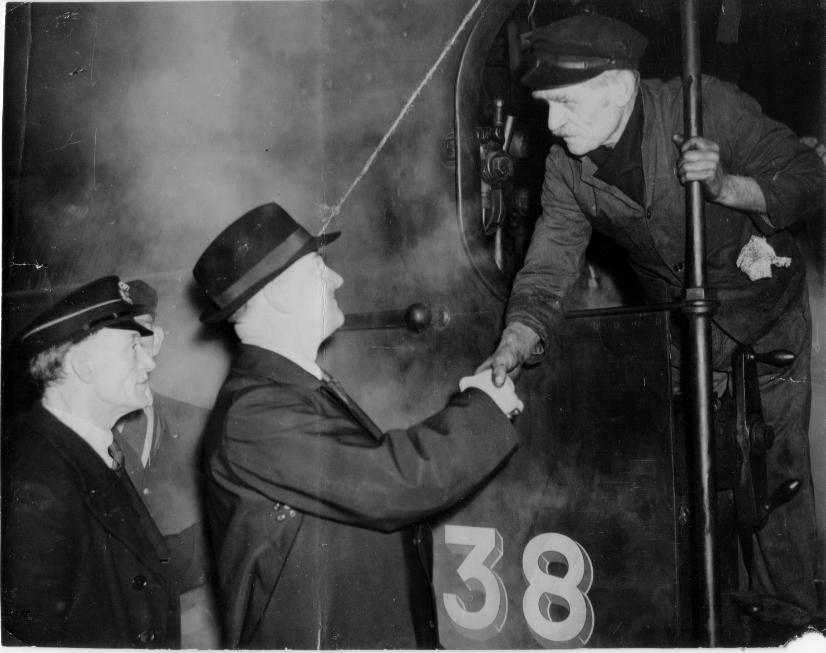
By Tony Tomlin Collection
Driver Thomas Moody working the first down Boat Train out of London
after W.W.2 in January 1945
Thomas Moody 27/12/1879 – 19/6/1952
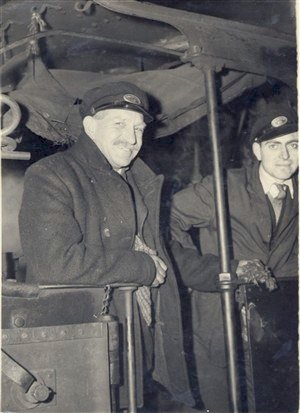
Peter Simmons Collection
Left ~ Right: Newhaven Engineman Jack "Bogey" Simmons
and his Fireman Reg Hooker/George Hilton (or John Nash).
Jack Simmons worked the last 'Boat Train' before the start of the Second World War and the first 'Boat Train' after the War on Wednesday 17th January 1945.
Jack later become the Running Foreman at Newhaven Shed, until his retirement in 1961
The Southern Railway's 2nd World War memorial at Brighton station
LOCOMOTIVE JOURNAL
FEBRUARY 1945
SELHURST BRANCH
At our 1944 A.G.M. we had Bro. W. Horton, E.C. member, in attendance, who, after the normal business had been disposed of, including election of officers for 1945, made a presentation of the Society's diploma to Bro. W. Snelling, our retiring chairman. Bro. Snelling has been a loyal and active member for 25 years, the last 12 he has been chairman.
Bro. Horton, in making the presentation, congratulated Bro. Snelling on his record of being active in the interest of his mates during his membership, and stated, although he was pleased to make the presentation, he regretted and realised yet another staunch worker would soon be leaving us, and appealed to the younger men to close up the gap and take an active interest in branch affairs, especially so in the immediate future when items, such as the National Programme, the new administration the S.R. are going to introduce, Social Insurance, and others will require the closest attention of all concerned.
Bro. Snelling suitably replied. Bros. Armstrong, Chapman and Secretary, also Bro. C. Branson, Secretary Council member, who attended in company as a visitor with two of his comrades from Wimbledon Branch, all added their congratulations and wishes of good health for the future. All members are asked to note that the new branch meetings branch meeting dates are third and fourth Fridays each month, Ruskin House, 6.30 p.m. There is work to be done
BILL BOULTON.
Thanks, Bro. Snelling.-Editor.
V.E. DAY AT HORSHAM LOCO
Bill Edwards was at Horsham, he took me to the depot on V.E. evening, he was then a fireman then. I remember the turntable rail was covered with detonators (fogs), and an engine was turned on it, after that visit I was more determined to become an engine driver, and from 1945, I was one of several others that cleaned and polished them under the watchful eye of the running foreman, Ernie Clack, father of Horsham driver Harry Clack, and the rest is history!
RODNEY BURSTOW
HORSHAM DRIVER
The sheer cold courage of the Enginemen throughout the country during the Second World
War, a place of pride in the ranks of those civilians who helped in country in her darkest hour went unrewarded.
After the cessation of hostilities A.S.L.E.& F. presented to the Railway Executive Committee a claim for a substantial increase of wages and improvements to terms and conditions these were a maximum working of 40 hours, a National Pension Scheme for Enginemen, granting of a fortnights paid holiday, enhanced Sunday rate of pay, payment of sick leave and a universal eyesight test for Enginemen. A.S.L.E.& F. did not receive any of these demands until 1948 after the railways had been nationalised by the Labour Government.
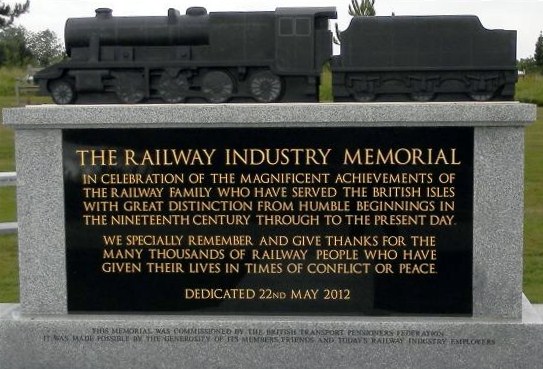
The National Memorial Arboretum at Alrewas (near Lichfield) in East Staffordshire
site of the national remembrance for railwaymen & women
It would take another six months of hard negotiations by A.S.L.E.F. before its members were given a wage increase, which even then did not adequately meet the higher cost of living.
This left a feeling of resentment for if it was not for the commitment given by the railwaymen and women in keeping the country moving it could have resulted in a different outcome for the entire Country.
The railwaymen and women of Britain have become the forgotten army, as they played a major part in helping to defeat the Germans whilst remaining on British soil.
Railway accident on the
Southern Railway
Brighton Section
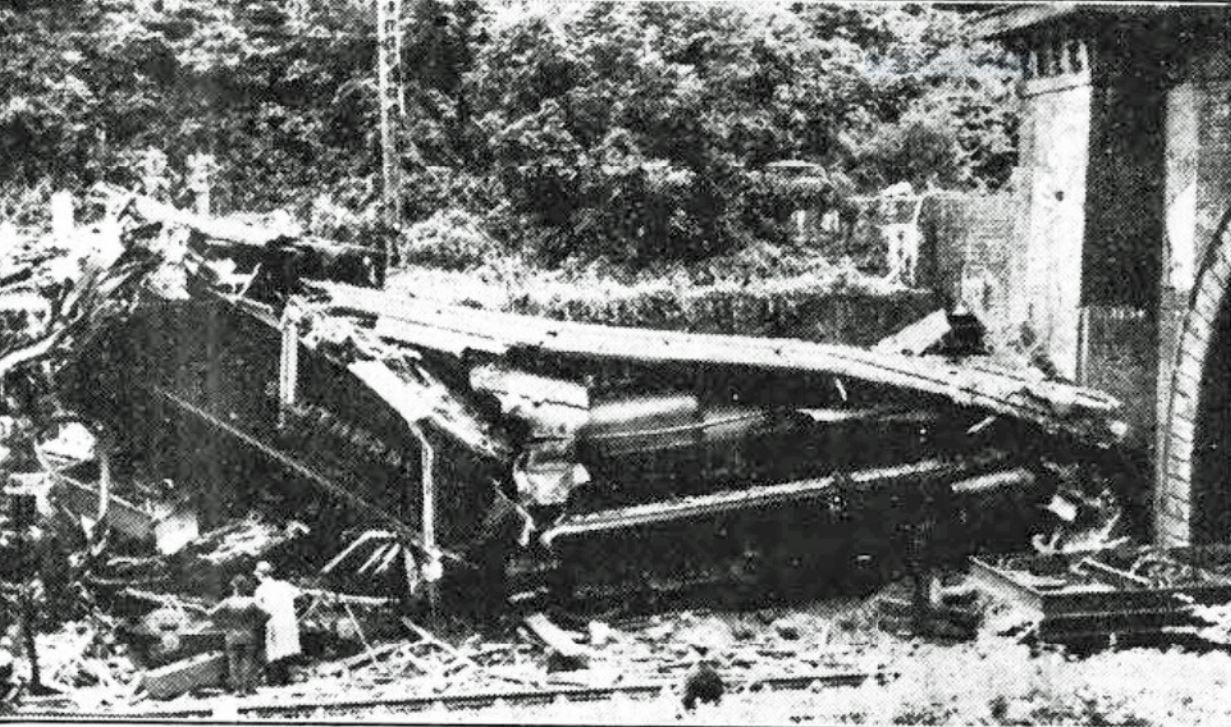
PHOTOGRAPHER UNKNOWN
THREE BRIDGES LOCO SHED
DAVE SHOPLAND & RAY YOUNG
As in the first world war so the larger shed built in the fork of the Brighton and Horsham lines in 1909 with its 50ft turntable, repair facilities and central location on the system proved invaluable not in war time freight traffic but for turning servicing of variety of engines at the time of the Dunkirk evacuation. Once again foreign engines in the shape of London Midland Scottish, 8Fs and others appeared on through trains from the L.M.S. system and War Department 2-8-0’s appeared on the Southern.
After the war the allocation of predominantly ex-L.B.S.C.R. classes gradually gave way to “foreign” types L.M.S. 4P and 2P classes, M7 0-4-4T’s and Q and Q1 Class 0-6-0’s.
In 1945, there were three running links of twelve, one shunting link of six, one shed link of five, made up of “Green Card men” and “Passed Men”, ten Engine Cleaners, three Running Foreman, four Fitters and their mates, five Boiler makers and their mates, ten women shed staff and a Coal-man. This was a total of 94 members of staff employed at Three Bridges loco shed.
LOCOMOTIVE JOURNAL
OCTOBER 1945
SELHURST BRANCH
Bro. H.E. Cooper, was involved in a V.2 "rocket incident, on October 26, October, 1944, and although badly injured saw to it that the passenger of his train had the proper attention, and afterwards made sure his train which was badly damaged, was taken out of service. After nine months had elapsed he was commended in the London Gazette for his action and devotion to duty. Although still incapacitated and an in-patient in Croydon General Hospital, Bro. Cooper is in receipt of a 50 per cent. pension, a stately sum of 25s. per week, plus 20s. N.H.I. Our grouse is not against the railway company, who have paid his wages for six months - plus a grant from the Benevolent Fund - but against the Ministry of Pensions, who, at least, in our estimation, should pay 100 per cent. pension whilst a man is incapacitated. We trust that the result of Head Office approach will be to achieve.
Bro. O. Smith attained the age of 68, on September 5, and retired from the service of the Southern Railway after 50 yeas and 10 months' service. "Old Ock," as he is known to us all, can claim to be the oldest motorman in the service. We wish him good health and contentment in his retirement. Congratulations "Ock," on what must be a record, which will stand for all time.
W.B.
Photo by Norman McKillop, and taken from the book ’Top Link Locomotives’
Extracted and adapted from
Newhaven Branch Meeting
Sunday October 28th 1945
A letter from the local Labour Party was read for nominations for prospective council members of Labour Party. the question of affliction and re-affiliation to the local Labour Party was raised and it was proposed by Bro. Cossburn. That the request for affiliation to Labour Party lay on the table.
Re the National Programme, its latest negotiations results had statement of items still to be negotiated were read. Proposed by Bro. Bro. Cossburn & seconded by Bro. M. Smith. That Secretary write to journal as
"That owing to the great dissatisfaction among the members of the A.S.L.E & F. On the National Settlement. All Branches support a motion, through the Journal that before the final acceptance of the negotiations, ballot of members take place for the guidance of the Executive.”
Carried.
Letter was read re the Manning of the Electric Loco. Notes were given by Chairman on information he had received re proposals for other Railways etc. Proposed by Bro. J. Cossburn & seconded by Bro. E. Collington. “
That the question of Manning of the Electric Locomotive be made an item of the National Programme."
The Chairman gave an outline of the L.D.C. Report mention being made of the points such as Retention of Men over 65, and their possible effect on the annual leave for 1946. Reference was also made to the late issue of overalls and their lack of pockets etc. Also the item of substitution of repairs book for repair cards!
Extracted and adapted from
SEAFORD BRANCH MINUTES
December 22nd 1945
Impromptu meeting held in messroom at Seaford to discuss letter from C. Branson in relation to Christmas leave, when the following resolution was forwarded to Head Office, moved by Bro. F. Wilmshurst and seconded by Bro. A. Scott.
Extracted and adapted from
SEAFORD BRANCH MINUTES